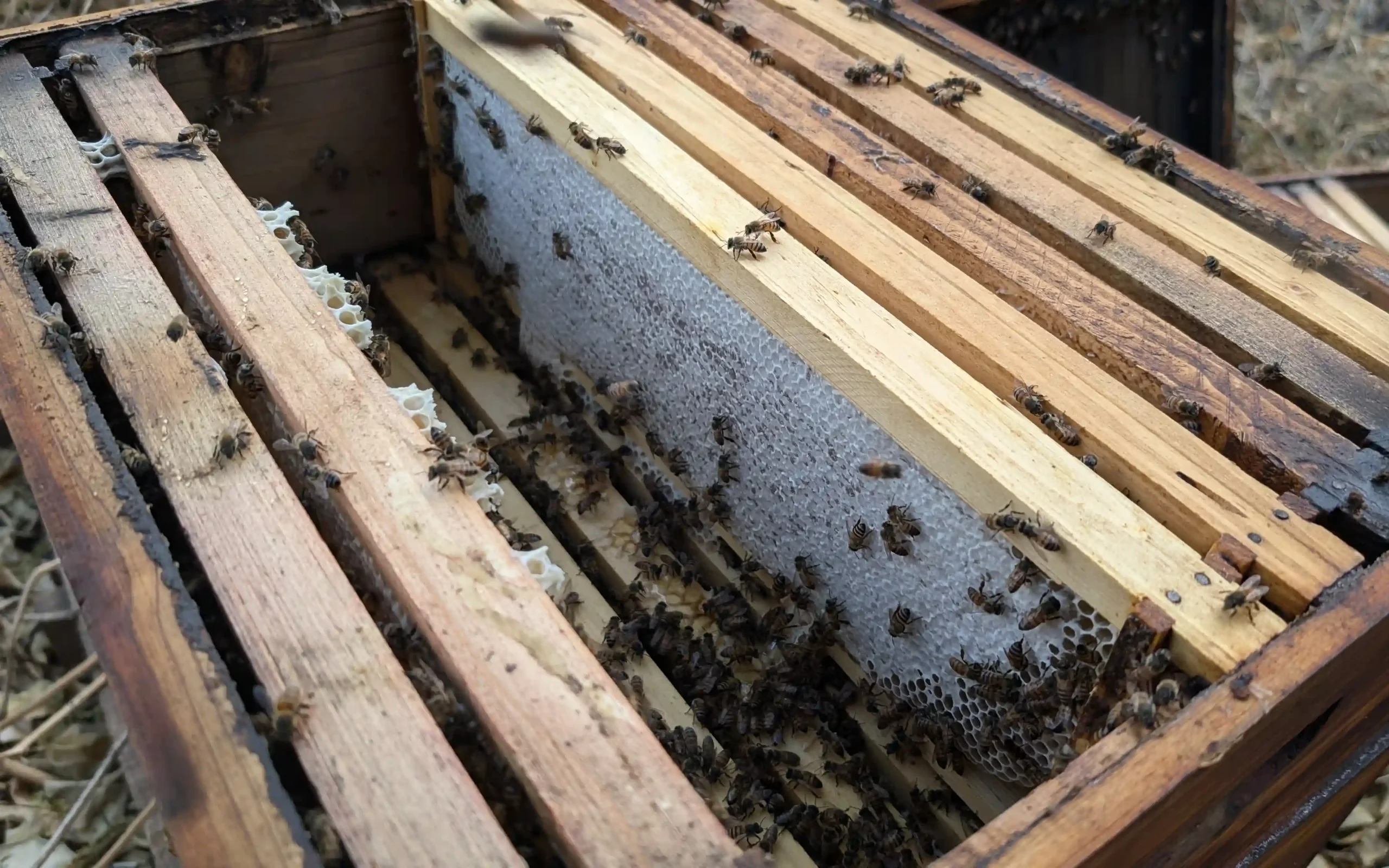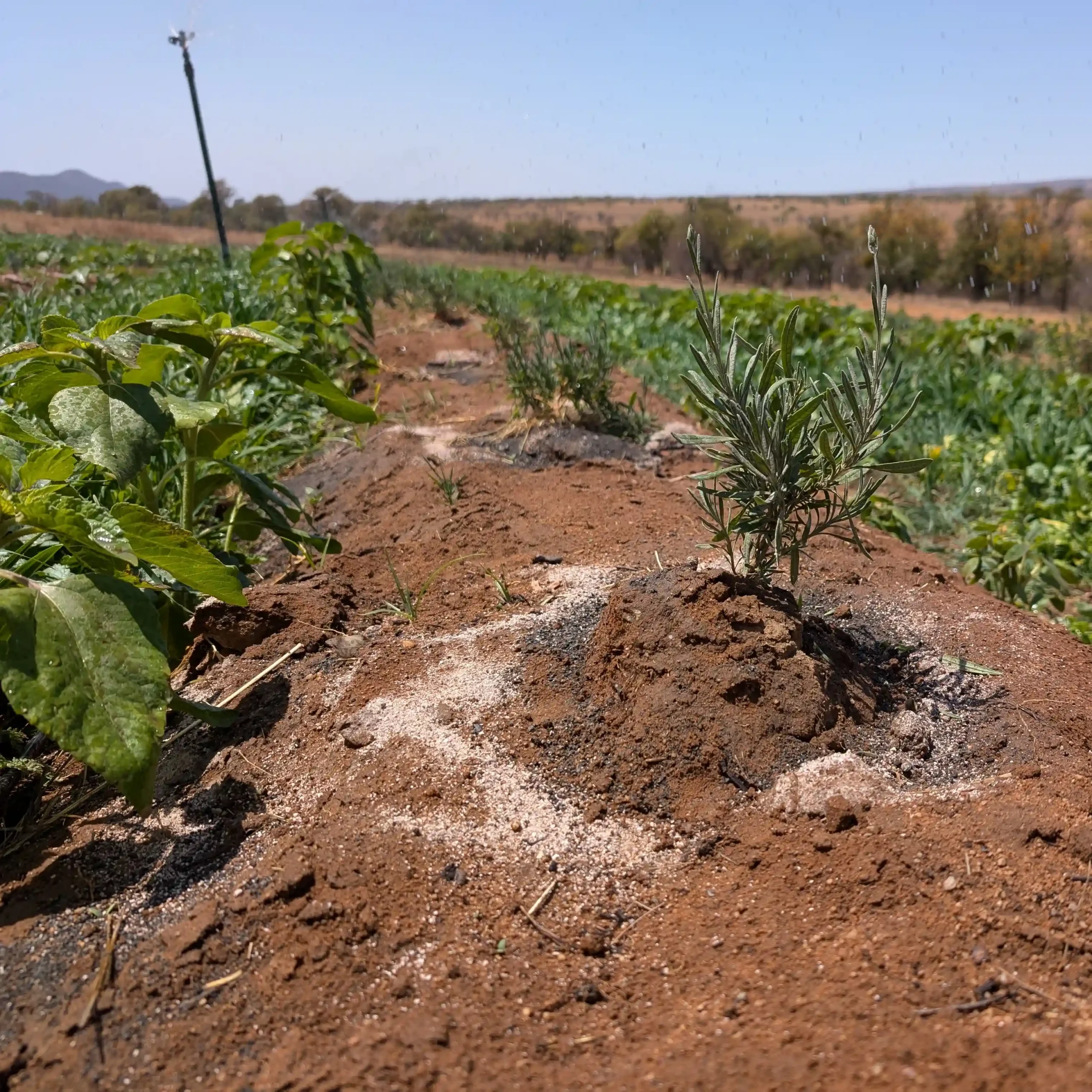Boosting Food Security in a Remote South African Community
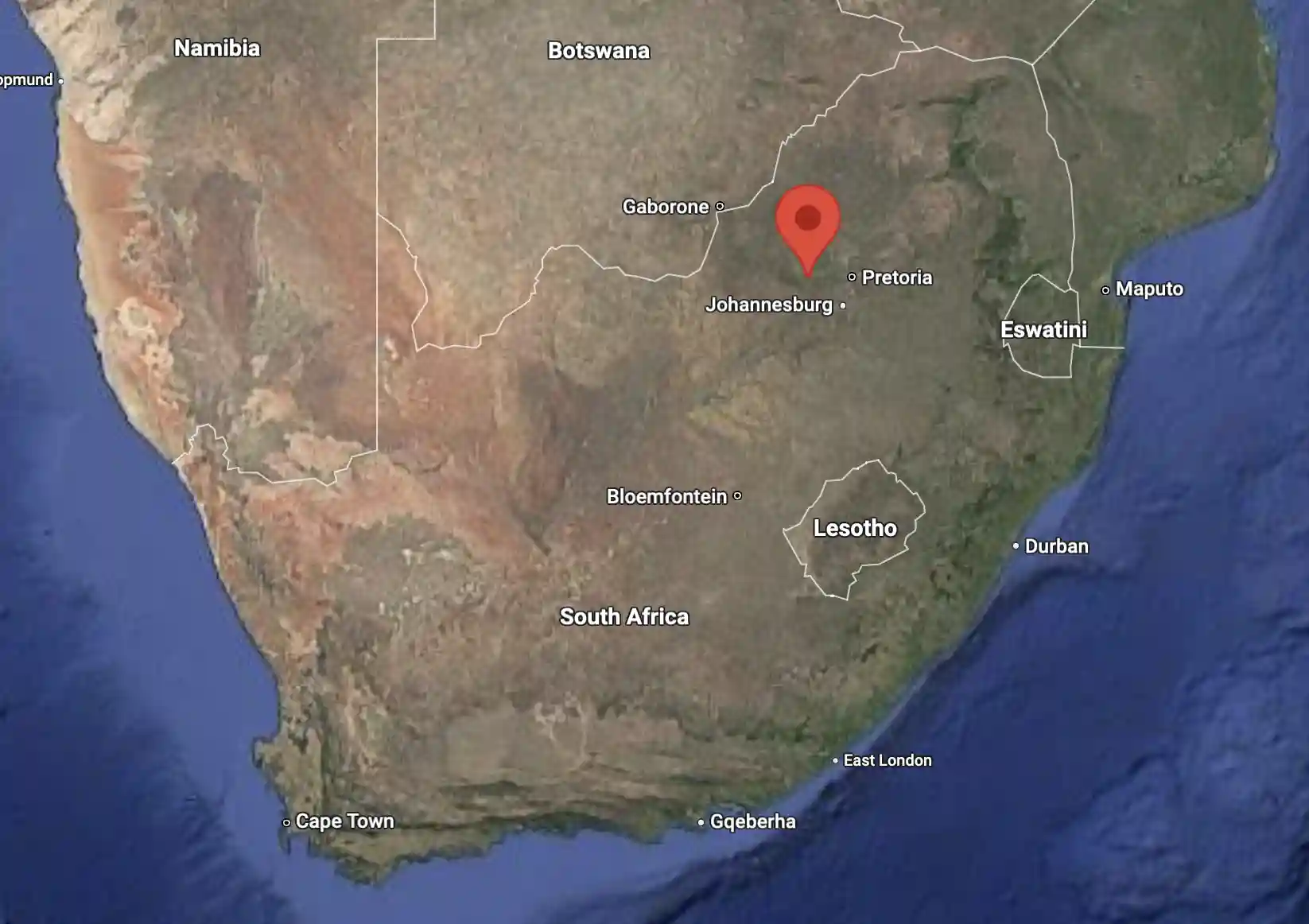
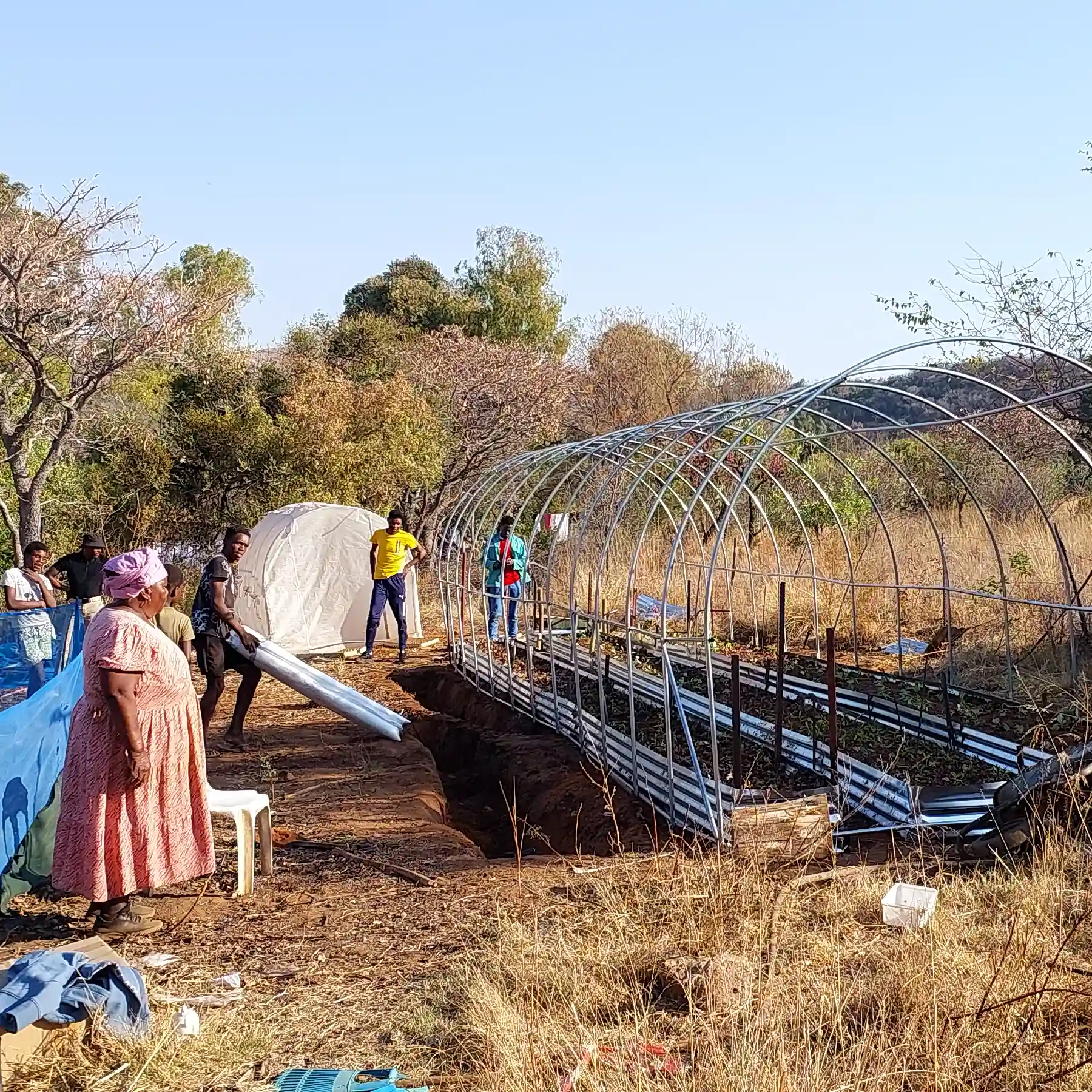
South Africa, with all its natural beauty, incredible heritage and mosaic of cultures, is also home to some of the most impoverished communities in the world. Ride Down South is currently investing in a small farm homestead an hour outside of the city of Johannesburg, working alongside the people who live there to see them become a sustainable and thriving community. It is a beautiful spot, set in the mountains of the Magaliesberg, a place from which we have launched and landed several of our motorbike trips over the years.
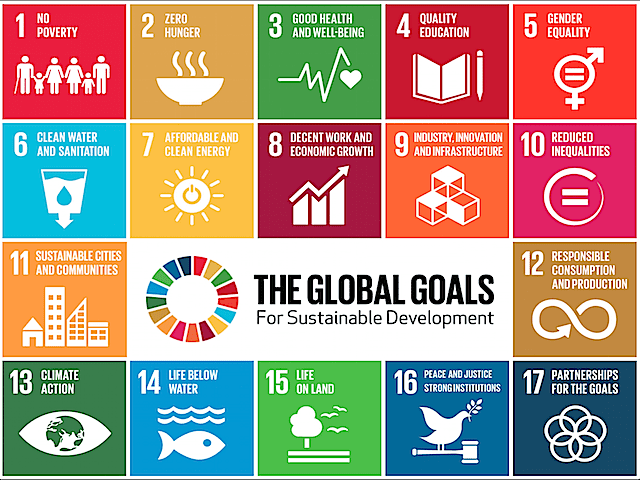
In alignment with the UN Global Goal towards Zero Hunger, we are investing in creating sustainable food production systems and resilient agricultural practices in one small community in South Africa. We know that whilst we cannot change everything, we can make a significant difference for one group of people, utilising these three hectares of land, making the most of agricultural opportunities using regenerative farming methods. Our vision is to transform what is currently wild grassland into a subsistence farming project that provides food to the immediate community, as well as sustainable income.

We've identified a number of crops that would suit the soil type and climate, as well as being of no interest to the local baboon troops that would otherwise wreak havoc. We have already planted hundreds of lavender plants, manage a number of bee hives that produce delicious honey, and are nurturing a variety of vegetables planted in a protective nursery. This will all go a long way to provide for this small community.
South Africa, with all its natural beauty, incredible heritage and mosaic of cultures, is also home to some of the most impoverished communities in the world. Ride Down South is currently investing in a small farm homestead an hour outside of the city of Johannesburg, working alongside the people who live there to see them become a sustainable and thriving community. It is a beautiful spot, set in the mountains of the Magaliesberg, a place from which we have launched and landed several of our motorbike trips over the years.
In alignment with the UN Global Goal towards Zero Hunger, we are investing in creating sustainable food production systems and resilient agricultural practices in one small community in South Africa. We know that whilst we cannot change everything, we can make a significant difference for one group of people, utilising these three hectares of land, making the most of agricultural opportunities using regenerative farming methods. Our vision is to transform what is currently wild grassland into a subsistence farming project that provides food to the immediate community, as well as sustainable income.
We've identified a number of crops that would suit the soil type and climate, as well as being of no interest to the local baboon troops that would otherwise wreak havoc. We have already planted hundreds of lavender plants, manage a number of bee hives that produce delicious honey, and are nurturing a variety of vegetables planted in a protective nursery. This will all go a long way to provide for this small community.
You Can Help
Whilst it is still very early days, we have invested in getting this project up and running
We have a lot still to do and here's how you can help
Meet the Community
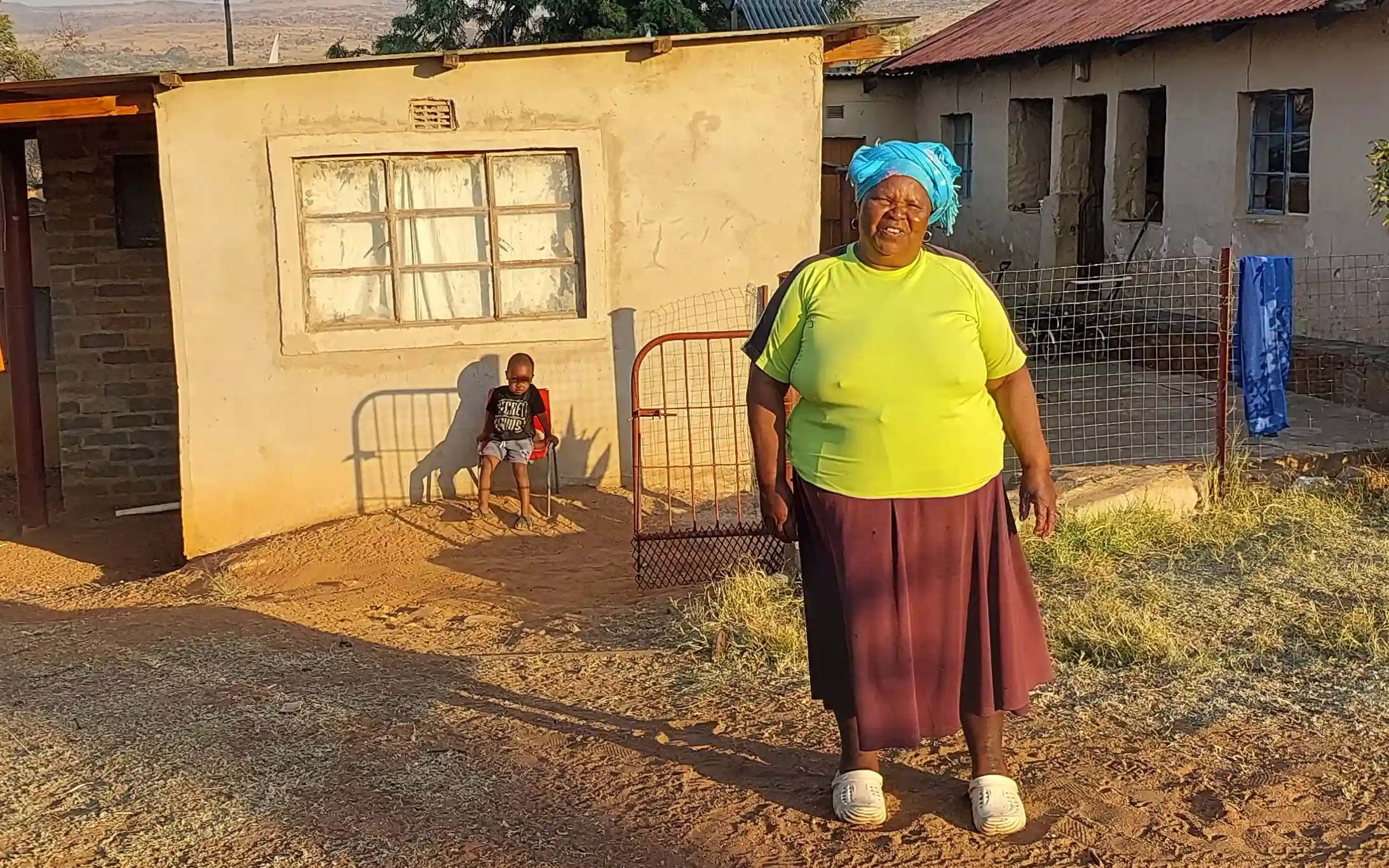
Miriam Mogwane
“I have lived here for more than four decades,” says Miriam Mogwane, “Kloofwaters is home.” But not always an easy one for her and the impoverished community that live so close to the economic hub of southern Africa (Johannesburg), and yet far away enough, where jobs are so scarce, despite the natural beauty. Born in the area 70 years ago to a Tswana family, Miriam went to school long before school buses were there to transport children. Her mother and father did not have money for school, so she had to leave when she was 12 years old. Once she had left school, Miriam got a job at a nearby nursery and learned how to grow flowers and various plants and herbs, working there for 5 years before her first child was born. It was then that she moved to Kloofwaters and began working as a domestic worker on the farm. “There was not even electricity then,” she laughs, “And we had to light candles in every room of the farmhouse at night.” Electricity and hot water came many years later. She raised her 7 children from there, three of whom are now buried on the land, and whose children she has raised too. She has been mother (and father) to many, she says stoically. One of those grandchildren is Ona, who is still at school, but the aspiring beekeeper and farmer who assists with the activities on the farm community. Miriam grows as much of her own food as she can – pigs, chickens and vegetables, even fruit. She also makes delicious lime marmalade. Work is scarce as the farm only provides one day each week currently, so turning the farm lands into food and potential income,is key to the thriving of this small community.
“I have lived here for more than four decades,” says Miriam Mogwane, “Kloofwaters is home.” But not always an easy one for her and the impoverished community that live so close to the economic hub of southern Africa (Johannesburg), and yet far away enough, where jobs are so scarce, despite the natural beauty. Born in the area 70 years ago to a Tswana family, Miriam went to school long before school buses were there to transport children. Her mother and father did not have money for school, so she had to leave when she was 12 years old. Once she had left school, Miriam got a job at a nearby nursery and learned how to grow flowers and various plants and herbs, working there for 5 years before her first child was born. It was then that she moved to Kloofwaters and began working as a domestic worker on the farm. “There was not even electricity then,” she laughs, “And we had to light candles in every room of the farmhouse at night.” Electricity and hot water came many years later. She raised her 7 children from there, three of whom are now buried on the land, and whose children she has raised too. She has been mother (and father) to many, she says stoically. One of those grandchildren is Ona, who is still at school, but the aspiring beekeeper and farmer who assists with the activities on the farm community. Miriam grows as much of her own food as she can – pigs, chickens and vegetables, even fruit. She also makes delicious lime marmalade. Work is scarce as the farm only provides one day each week currently, so turning the farm lands into food and potential income,is key to the thriving of this small community.
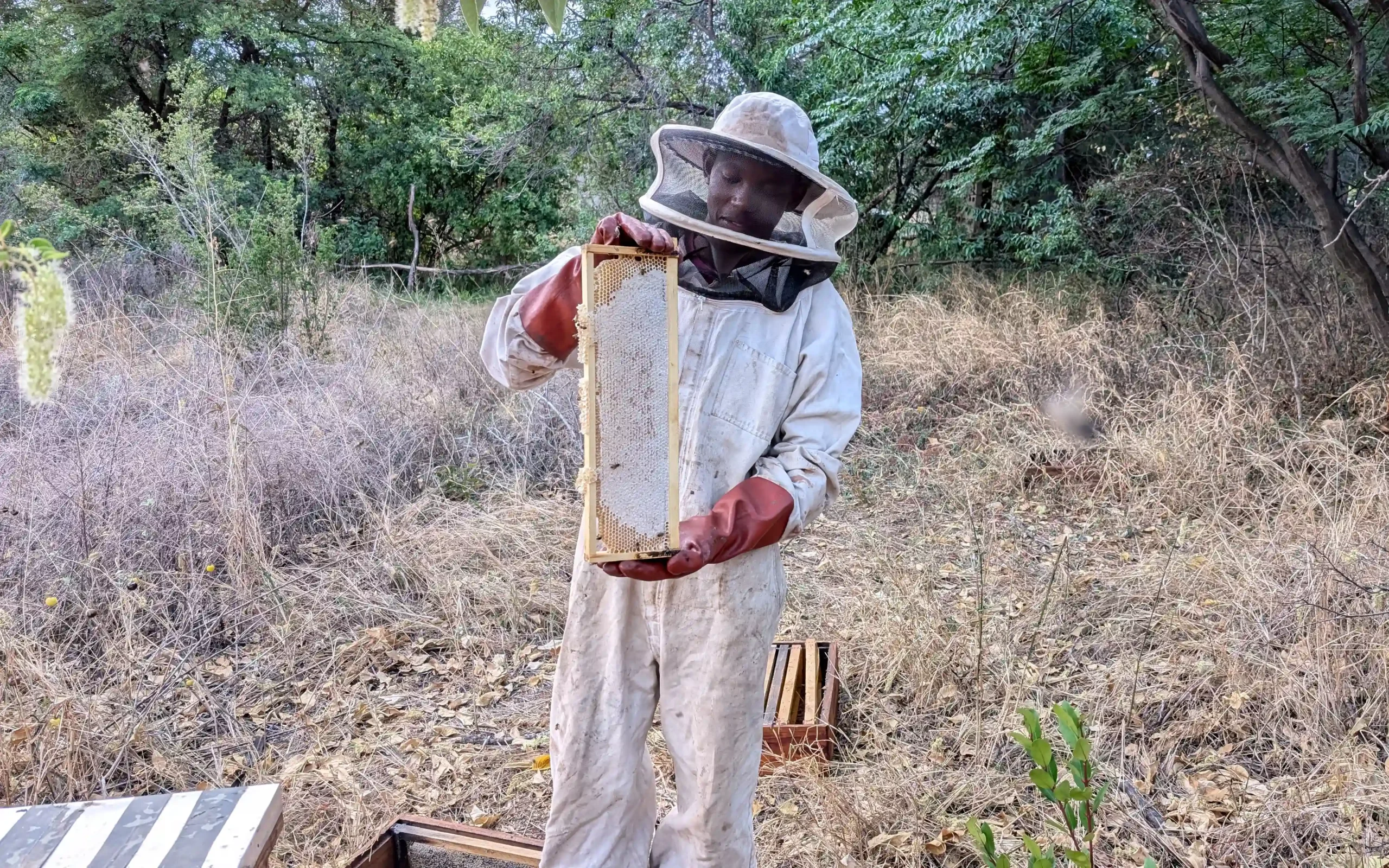
Onalerona Chirwa:
“I have lived here on this farm for my whole life,” says Onalerona Chirwa, 17 years old. “I am glad not to have lived in the city, the farm has been a good place for me to grow up – there is no peer pressure here.” Every day Ona, as he is known by his community, takes a bus to Marikana High School where he is completing Grade 10. It is a 30-minute walk to the bus stop both ways, but he enjoys the time. He lives on Kloofwaters with his grandmother who has also lived there for much of her life. Ona’s mother lives in the nearby township of Marikana, but as he says, “That is no place to grow up.” He does see his mother in Marikana regularly, but prefers being in nature and living on the farm. Two years ago, his interest in bees and beekeeping came to life when he approached Andrew and asked if he could learn to work with the bees. “When I was young I used to see Andrew doing bees, but only in Grade 7 did I ask if I could help with the bees.” Andrew agreed to mentor him in beekeeping and despite the bee suit being way too big, and initially, being very scared of the bees, Ona kept coming back for more. “I really enjoyed it and grew to understand the bees and what we needed to do.” Ona is no longer afraid of the bees. He has not been stung too often, and that has not done anything to put him off his newfound passion. Ona is a farmer at heart. He enjoys tending the lavender plants on the farm, which will be planted out in September. “I enjoy farming all things,” he says. And he particularly enjoys the Citrus honey they harvest – on bread, with tea. “It really is good honey!”
Miriam Mogwane
“I have lived here for more than four decades,” says Miriam Mogwane, “Kloofwaters is home.” But not always an easy one for her and the impoverished community that live so close to the economic hub of southern Africa (Johannesburg), and yet far away enough, where jobs are so scarce, despite the natural beauty. Born in the area 70 years ago to a Tswana family, Miriam went to school long before school buses were there to transport children. Her mother and father did not have money for school, so she had to leave when she was 12 years old. Once she had left school, Miriam got a job at a nearby nursery and learned how to grow flowers and various plants and herbs, working there for 5 years before her first child was born. It was then that she moved to Kloofwaters and began working as a domestic worker on the farm. “There was not even electricity then,” she laughs, “And we had to light candles in every room of the farmhouse at night.” Electricity and hot water came many years later. She raised her 7 children from there, three of whom are now buried on the land, and whose children she has raised too. She has been mother (and father) to many, she says stoically. One of those grandchildren is Ona, who is still at school, but the aspiring beekeeper and farmer who assists with the activities on the farm community. Miriam grows as much of her own food as she can – pigs, chickens and vegetables, even fruit. She also makes delicious lime marmalade. Work is scarce as the farm only provides one day each week currently, so turning the farm lands into food and potential income, is key to the thriving of this small community.
Onalerona Chirwa
“I have lived here on this farm for my whole life,” says Onalerona Chirwa, 17 years old. “I am glad not to have lived in the city, the farm has been a good place for me to grow up – there is no peer pressure here.” Every day Ona, as he is known by his community, takes a bus to Marikana High School where he is completing Grade 10. It is a 30-minute walk to the bus stop both ways, but he enjoys the time. He lives on Kloofwaters with his grandmother who has also lived there for much of her life. Ona’s mother lives in the nearby township of Marikana, but as he says, “That is no place to grow up.” He does see his mother in Marikana regularly, but prefers being in nature and living on the farm. Two years ago, his interest in bees and beekeeping came to life when he approached Andrew and asked if he could learn to work with the bees. “When I was young I used to see Andrew doing bees, but only in Grade 7 did I ask if I could help with the bees.” Andrew agreed to mentor him in beekeeping and despite the bee suit being way too big, and initially, being very scared of the bees, Ona kept coming back for more. “I really enjoyed it and grew to understand the bees and what we needed to do.” Ona is no longer afraid of the bees. He has not been stung too often, and that has not done anything to put him off his newfound passion. Ona is a farmer at heart. He enjoys tending the lavender plants on the farm, which will be planted out in September. “I enjoy farming all things,” he says. And he particularly enjoys the Citrus honey they harvest – on bread, with tea. “It really is good honey!”


